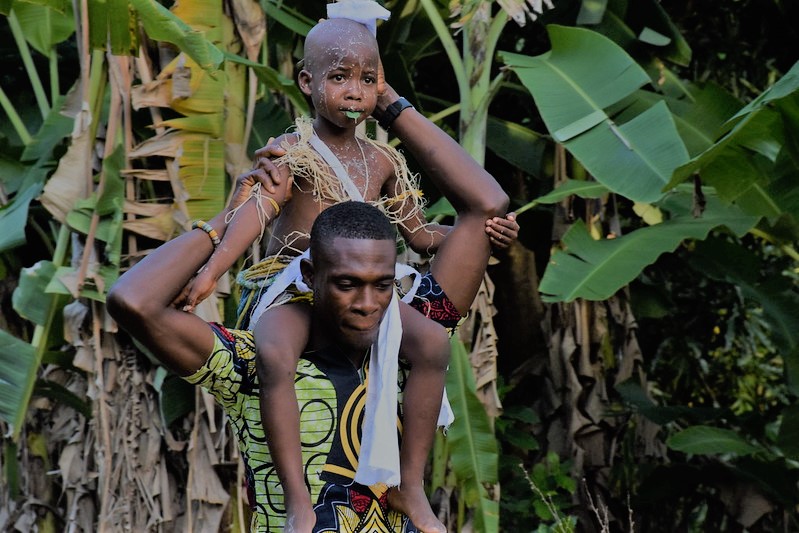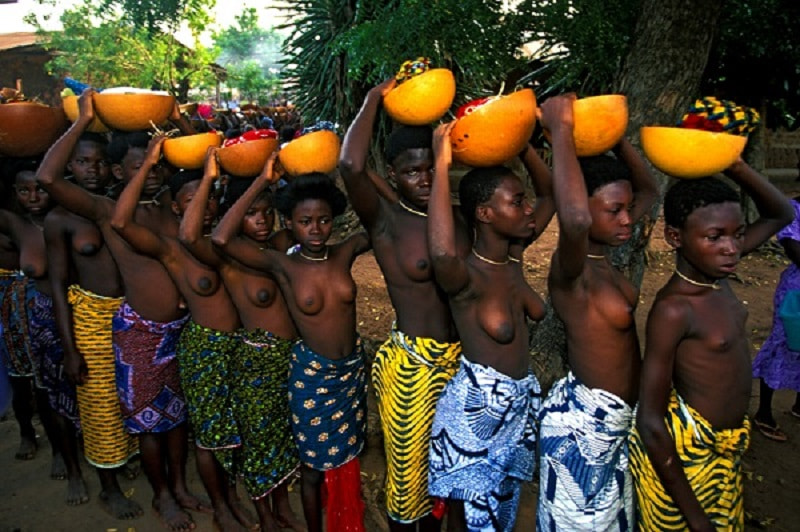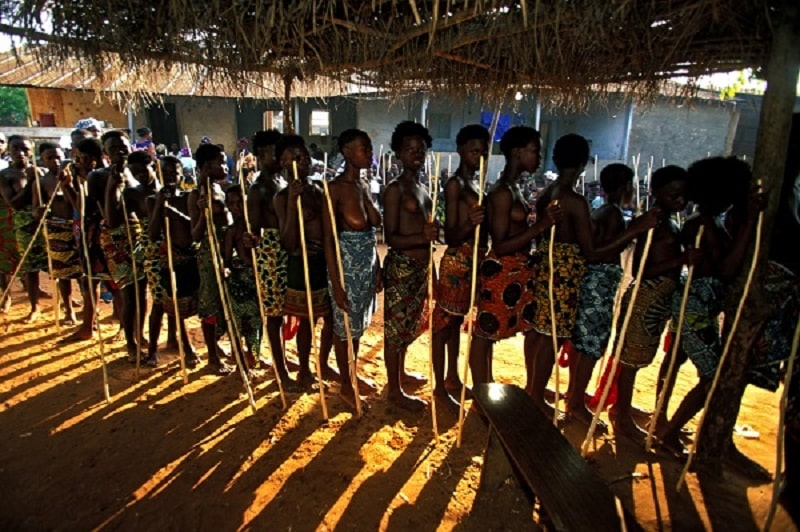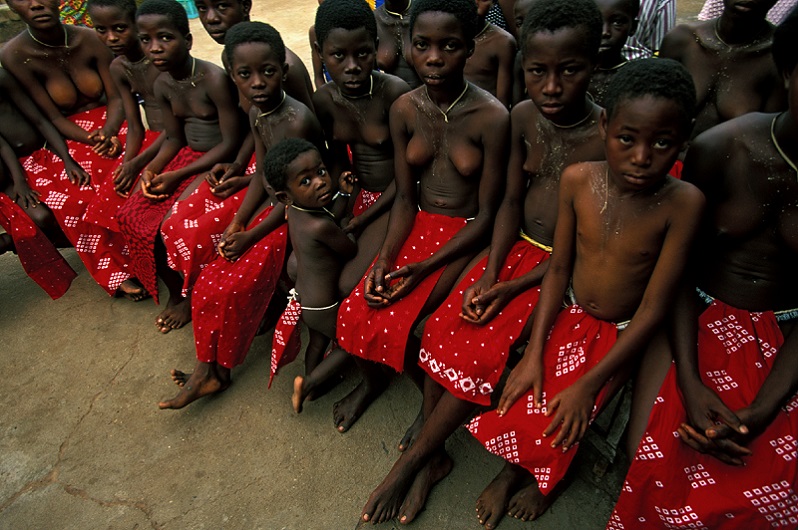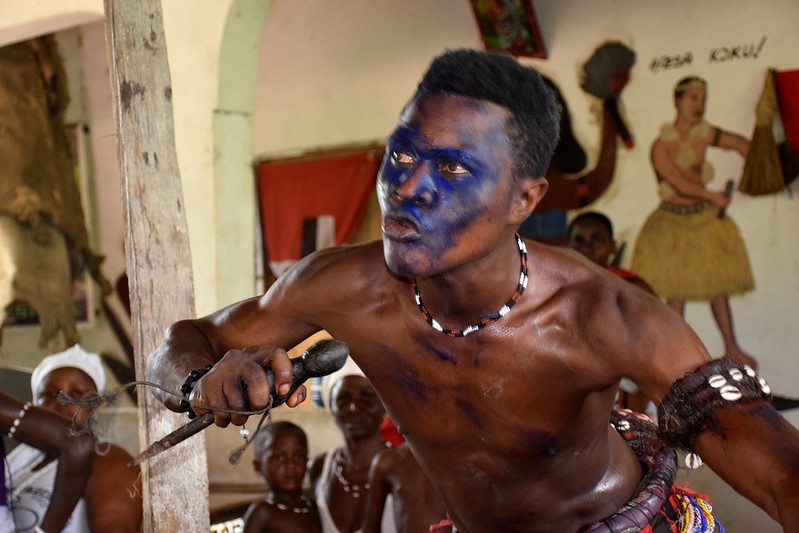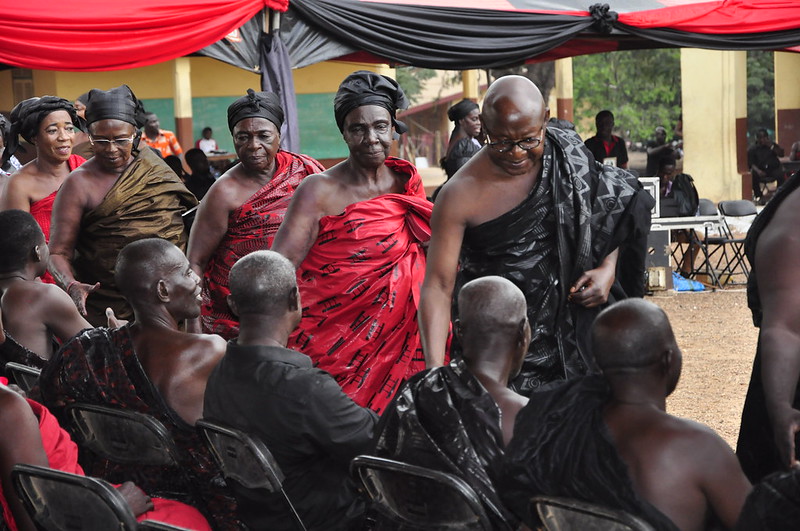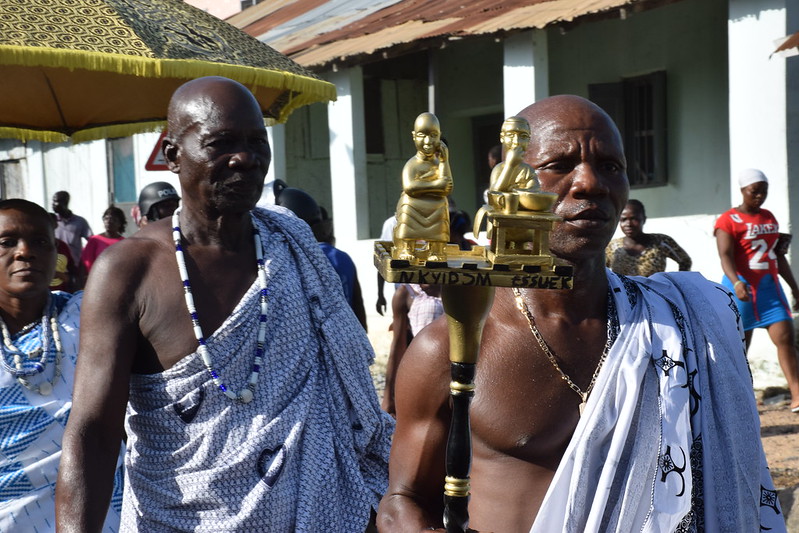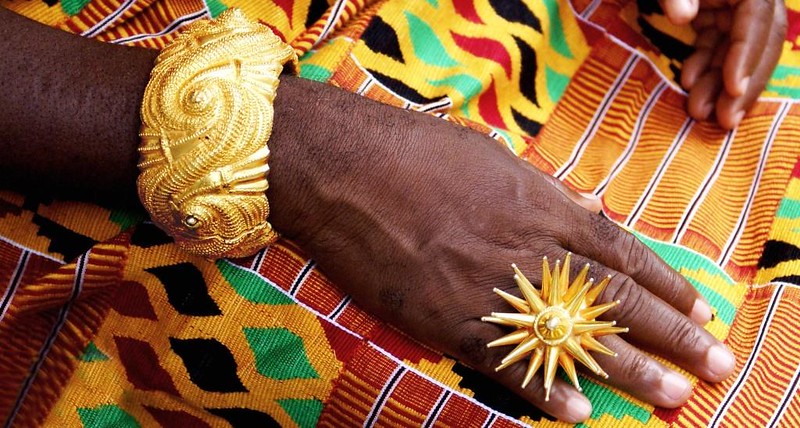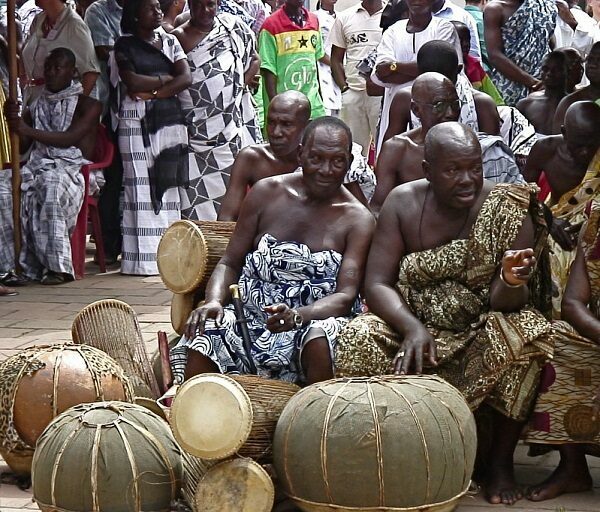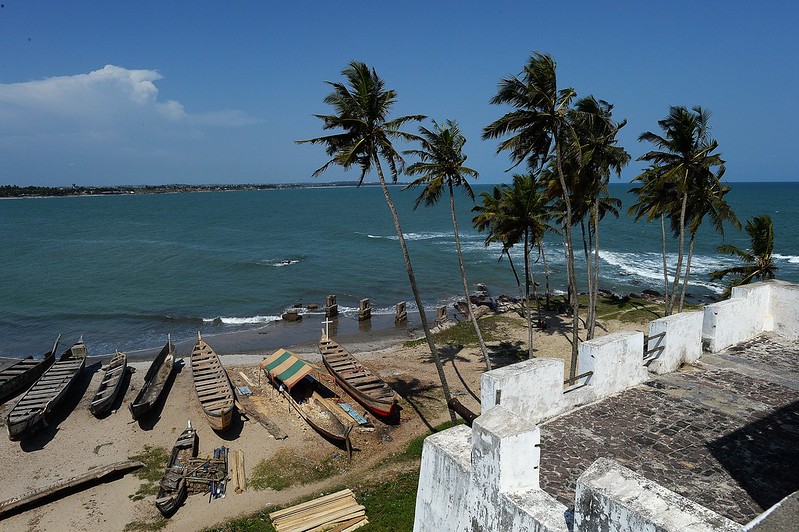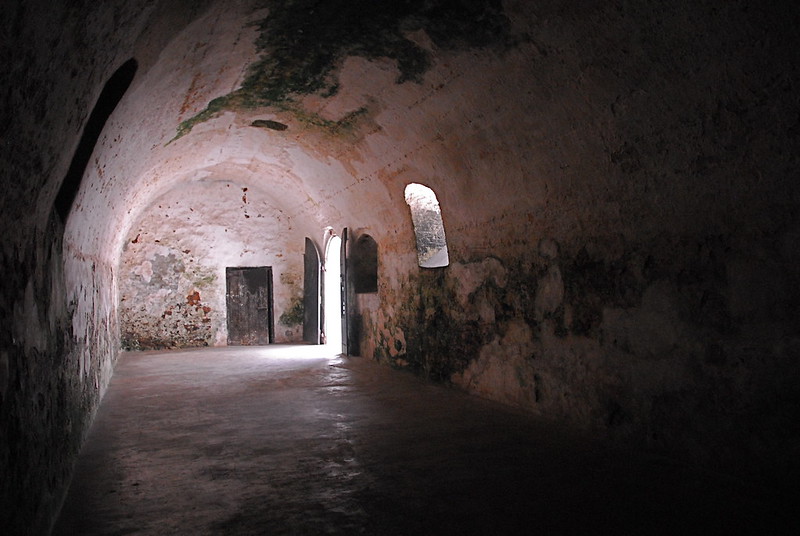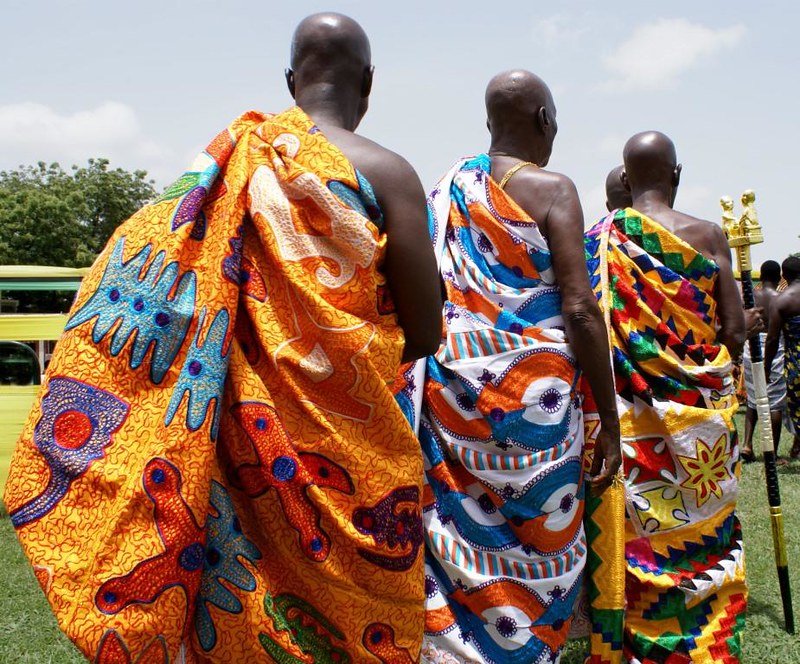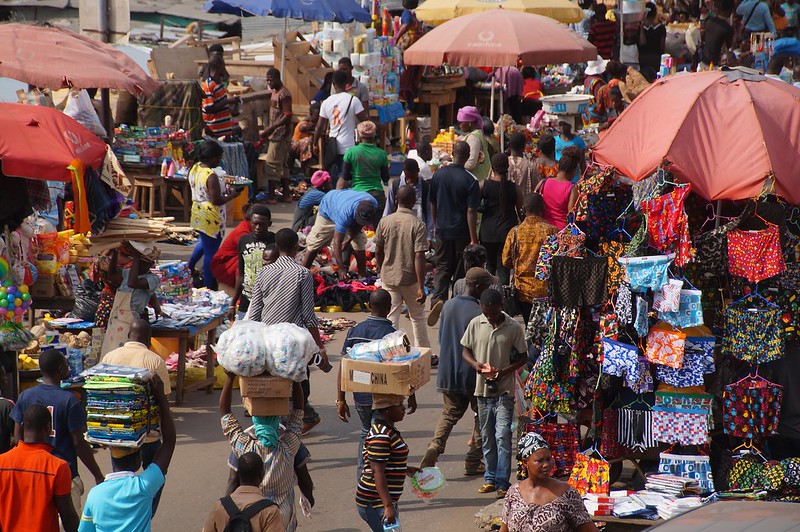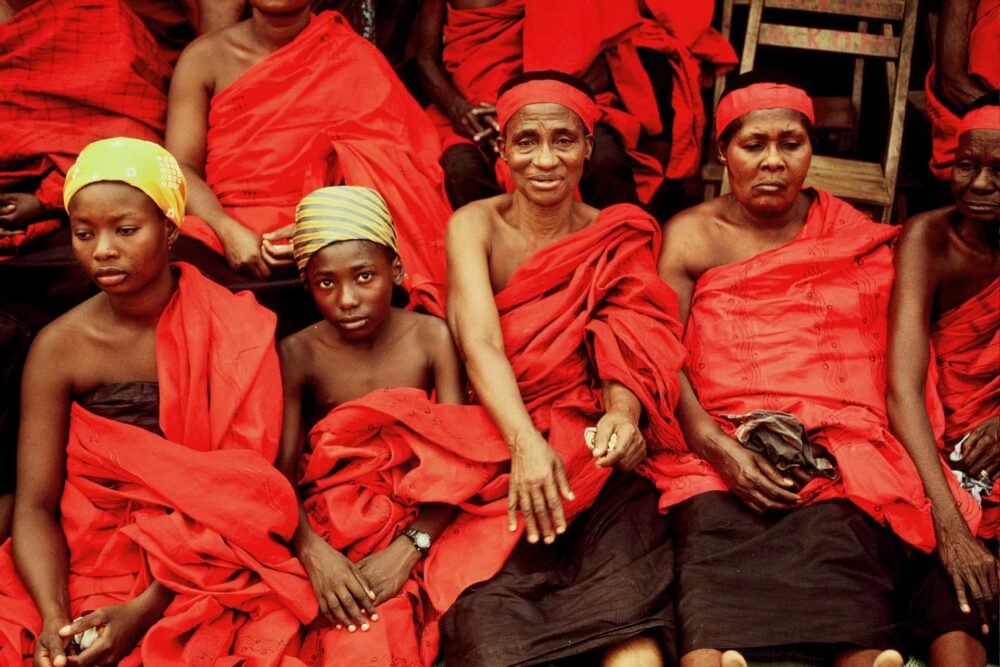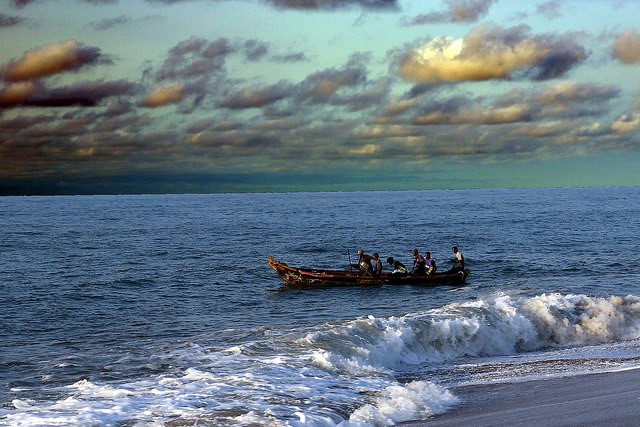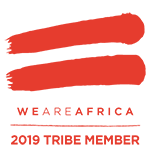Description
GHANA
Aboakyer Festival, also known as the ‘deer hunting festival’, organized in honor of the tribal God of Winneba, a fabulous opportunity to experience the climax of a Fanti festival.
The Awukudae festival is celebrated around the traditional chiefs in order to benefit from the constant protection of the guardian spirits and also to strengthen unity between the people and their chiefs, the people kneeling down to pay their respects to the chiefs. It is a unique opportunity to attend a highly colorful royal ceremony in one of the last African kingdom to have kept unchanged all of its rituals.
The Krobo region is famous for its pearls and for its initiation rites, which only apply to girls.
Dipo is the name of the “process” through which a young girl becomes an adult woman, fully integrated within her society.
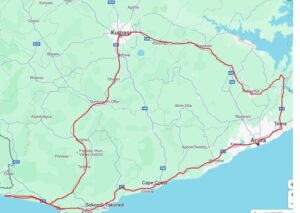
Day 1: Accra in
Arrival and transfer to the hotel.
Day 2 : Cosmopolitan city, Accra – Winneba (80 km – driving time 3h)
Accra, the capital of Ghana, has maintained its unique identity despite the fast-paced development currently underway in this intriguing African city.
We meet people specialized in building fantasy coffins. These handcraft-coffins are in shape of fruits, animals, fish, cars, airplanes…. and the only limit is the intended occupant’s imagination. Started in Africa, these flamboyant coffin designs are collected worldwide and exposed in museums.
On the agenda is also a visit to the National Museum, one of the first works of independent Ghana. The idea inspiring the Museum is to relate Ghana art to the rest of the continent and to prove the existence of an African history as part of general history of Humanity.
We explore the old quarter of James Town, inhabited by the autochthonous population known as the Ga.
Drive to Winneba.
A walk-in town will allow us to attend the settings for the ceremony take the program for the next day.
We continue few kilometres to our hotel.
Day 3 : Aboakyer, Winneba, different transfers
We will attend the Aboakyer celebrations.
Aboakyer, also known as the ‘deer hunting festival’, it is organized to honor the tribal God of the town. In this festival, God Penkye Otu receives the sacrifice of a deer. The festival originated about three hundred years ago, when Winneba was first settled. People believed they managed to establish their homes here only thanks to the help of their God and they are still under its protection. This festival is the expression of their gratitude. Aboakyer Festival involves two groups (Asafo Companies) of people in Winneba, the Tuafo and the Dentsifo. They compete with one another to go into the bush and be the first to catch a deer armed with only clubs. The group, which first catches the animal rushes, back home singing war and victory songs. The deer is then presented to the Omanhene who places his bare right foot three times on it. After completing this ritual, the deer is lifted and carried through the town streets accompanied by singing and dancing crowd to the shrine of Penkye Otu. In the final act of the festival, the Tuafo and the Dentsifo come together in front their God and sacrifice the deer.
Day 4 : Slaves’ Castles, from Winneba to Axim (220 km – driving time 5 hr)
Drive to the coast. The coast of Ghana (formerly known as Gold Coast) has more than 50 ancient forts and castles, reminiscent of the ancient gold, ivory and slave trade. We reach Elmina Castle, the oldest European building in Africa, erected by the Portuguese in the 15th century. At different times, the castle has been used as a warehouse to trade gold, ivory, and eventually slaves. The castle we visit today is the result of successive extension works and is recognized as a UNESCO World Heritage site. The old Dutch Cemetery in Elmina goes back to 1806. Outside the castle, there is a spectacular fishing village with lots of large colourful fishing boats – every day these large wooden pirogues conducted by skilled fishermen across strong ocean waves and currents, “fighting” to earn a living. In a nearby village, we will see the Posuban, the shrines of the ancient “Asafo companies” – the warriors who used to put their offerings on the large colourful statues.
Day 5 : Stilt village, from Axim to Nzulezo and back (120 km – driving time 3 hr)
This morning we drive to Nzulezo and visit the interesting village on stilt.
Nzulezo, a village on stilts. It can be reached only by pirogue, crossing a huge lagoon. Even just crossing the lagoon. ..The visit would be justified!
We are completely surrounded by the tropical vegetation, the shades of green and blue multiply endlessly, and the arrival to Nzulezo is one more surprise. The inhabitants are very friendly. The meeting and the visit of their houses, suspended on the water, helped us to know their way of life.
Axim Castle, built by the Portuguese in 1516 and then owned by both the Dutch and the British. The castle has kept the old shape of a European fort, which drastically contrasts with the local background made of simple fishermen villages and colourful canoes. We will visit the castle and his harbour.
Day 6 : the garden city, from Axim to Kumasi (300 km – driving time 6 hr)
This morning we drive north.
Welcome in another part of the Ashanti land: the Kingdom of gold. West Africa has been shipping gold all around the world for centuries and today Obuasi is among the most important site for gold mining in West Africa.
We will reach Kumasi in the afternoon.
Kumasi is the historical and spiritual capital of the ancient Ashanti Empire. Ashanti was one of the most powerful empires and kingdoms in Africa from 1670 to 1957 when British Gold Coast become the independent Ghana. The tribute paid today to the Asantehene (King) is the best evidence of their past splendour and strength and the still strong Ashanti pride. With nearly two million inhabitants, Kumasi is a sprawling town with a unique central market, one of the largest in Africa. All kinds of Ashanti craft (leather goods, pottery, beads, textiles called Kente cloth, etc.) are found here, along with just about every tropical fruit and vegetable.
The program includes a visit to the Ashanti Cultural Centre: a rich collection of Ashanti artefacts housed in a wonderful reproduction of an Ashanti house. In the afternoon, we participate – if available – in a traditional Ashanti funeral, attended by mourners wearing beautifully red or black togas. We say “funerals” but it means a “festive” celebration: thanks to this ceremony, the deceased return as an ancestor and will protect his family. Relatives and friends gather, socialize, and celebrate his/her memory. The chief arrives surrounded by his court under the shade of large umbrellas while drums give rhythm to the dancers whose intricate moves are highly symbolic in war and erotic meanings.
DAY 7: Awukudae, Kumasi (transfers)
We visit the Royal Palace Museum which will open its doors for us, displaying its unique collection of Ashanti souvenirs.
Then we attend the Royal Festival: Awukudae
After libations are poured in some private rooms comes the time of the great happy ceremony. In the shade of a highly colorful umbrella sits the chief, wrapped in brightly colored fabric. At the feet of his majesty opens up a narrow corridor made of dignitaries with various functions: ritual sword bearers, guards armed with powder rifles, courtiers carrying the knives used for executions, and carriers of ostrich feather fans. Next to the chief are seated the elders and the advisers under the authority of the royal speaker who holds in his hands the symbols of power covered in gold. During the ceremony, the courtiers bring their gifts and the “griots” tell the story of the past Ashanti kings, while drum and ivory trump players give rhythm to the ceremony. Pretty big women, wrapped in a vivid red cloth, perform traditional dances characterized by a series of delicate movements alternated with rapid moves from one end of the stage to the other.
This authentic ceremony takes place in one of the last African kingdom to have kept unchanged all of its rituals. We will experience the splendor, the colors and the atmosphere of the great monarchies of the forest of yesteryear.
Day 8 : the garden city, from Kumasi to Akosombo (280 km – driving time 6 hr)
Today we drive in the Eastern region.
Driving out of Kumasi we will stop at the Besease Traditional Shrine. The Ejisu animistic temple is known as the most interesting and well-preserved example of traditional Ashanti architecture. It was built in 1850 and was used by Yaa Asantewaa during the last war with British.
Near Koforidua, The Cocoa Reaserach Institute of Ghana, established in June, 1938 and working with Peace Corps, Ghana Tourism Authority, SNV Netherlands Development Organisation, is an interesting ecotourism opportunity. The Bunso Arboretum introduces you to an area of semi-deciduous forest with indigenous trees, fruits nuts, and timber tree species, which have been introduced to Ghana. Look out for birds, herbs garden, butterflies.
Later in the afternoon, a boat trip on the Volta River to enjoy tropical environment and meet fishing villages. The Volta River was named by Portuguese gold traders in Ghana. It was their farthest extent of exploration before returning (volta is Portuguese for “twist” or “turn”). “River of return” (perhaps because it was where ships turned around and headed for home) or “river of the bend”, in reference to its curved course. Once we crosse the Adomi Bridge we will face the famous Akosombo Dam…
Day 9-10 : DIPO & galss beads, different transfers (distances may vary accordingly with the Dipo site)
We attend the Dipo celebrations. Krobo people are well known for their production of glass beads, usually families heritages; they are shown during the Dipo celebrations.
Dipo: the female initiation rite among the Krobo People
A female initiation rite aims at turning a girl into a woman. The entrance into womanhood is led according to the tradition and girls who successfully go through this rite can become good wives. The girls undergo a series of rituals, tests, and tasks to prove both their chastity and their being ready for adult life.
During the final steps of the Dipo rite, the girls are elegantly decorated: colorful assorted beads adorn their exposed upper parts while from waist to knee they are covered in beautiful fabrics. The breasts are bare for everyone to see.
During the ceremony, the girls appear in public in their ceremonial dress and then their heads are shaved leaving only a small portion of hair on the head; a piece of raffia is tied around their neck to indicate they are Dipo-yi. On the next morning, the girls are given a ritual bath in a river and then are required to taste foods like sugar cane and peanuts. They will learn women’s tasks and once the rite is over, they will retour from a secret place adorned with glass beads necklaces and wrapped in beautiful textiles: it is the time of the celebration. They are the newborn! The day after they will dance for the community asking for money…
According to the Dipo schedule, we will join a Voodoo ceremony and we will take part to a glass bead master class which are part of everyday life in the villages. The frenetic rhythm of the drums and chants of the adepts’ help calling in the voodoo spirit who then takes possession of some of the dancers. They fall into a deep trance: eyes rolling back, grimaces, convulsions, insensitivity to fire or pain. Sakpata, Heviesso, Mami Water are just some of the voodoo divinities who can show up. In a village, surrounded by the magic atmosphere of the ceremony, we will understand what people mean when they say: “In your Churches you pray God; in our shrines we become Gods!
We will visit an atelier where they make glass beads according to the tradition. The process involves different stages: scrap glass is first grounded into a fine powder, and then it is meticulously made into patterns and placed into hand-made clay molds, covered in kaolin to be baked. We will have the time to learn and to produce our own beads.
Day 11 : Accra out, from Akosombo to Accra (110 km – driving time 3 hr)
In the morning, we will take part to the final stage of the Dipo accordingly with the program and then we will drive back to Accra.
Rooms in day use till 6 pm will be available before the final transfer to the airport.
Due to the characteristic of the trip, the itinerary might be modified in order to match with the traditional events.
Twin rooms (two beds apart) are very limited. Please check the availability with TransAfrica before booking.
- VISAS: Ghana- single entry visa to be obtained before the departure
- VACCINATIONS: Yellow fever – compulsory; malaria prophylaxis – highly recommended.
- MEALS: lunch: picnic or at local restaurants (pre-selected menus); dinner at the hotel restaurant (pre-selected menu)
- LUGGAGE: due to the itinerary please contain the weight in 20 kg (45 Lbs)
- TRAVEL INSURANCE: Not included. Mandatory for medical assistance, repatriation, material, and physical damages. We are not responsible for any material and physical damage during the tour
Discover our insurance policy proposal: https://transafrica.biz/en/travel-insurance-en/
- TRANSPORT: microbus or minibus
- All our trips are designed to be flexible so that we can adapt it to weather conditions, focus on the group’s interests and take advantage of opportunities that arise once there.
- Considering the special nature of the journey, some parts may be modified due to unpredictable factors and are based on unarguable decisions of the local guide. Costs originating from such variations will be sole responsibility of the participants. Of course, the guide will do his/her utmost to adhere to the original program.
- Prices could change in case of major changes in services costs, beyond the organizer’s will

